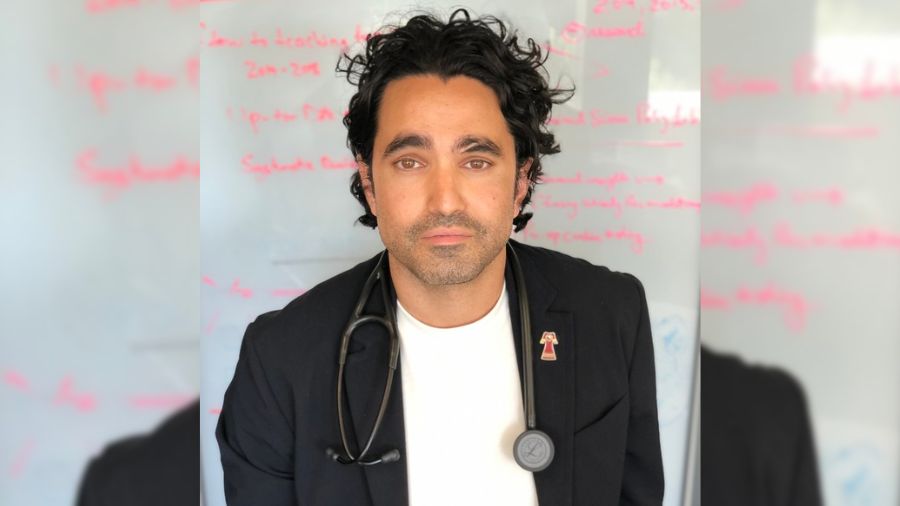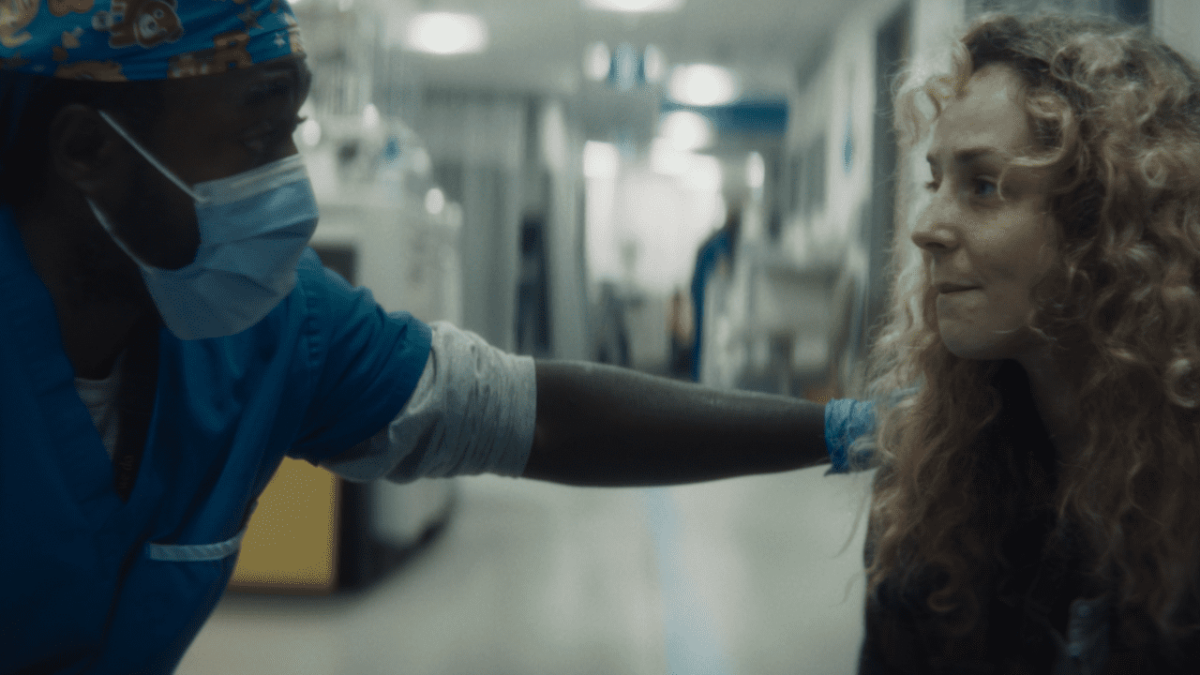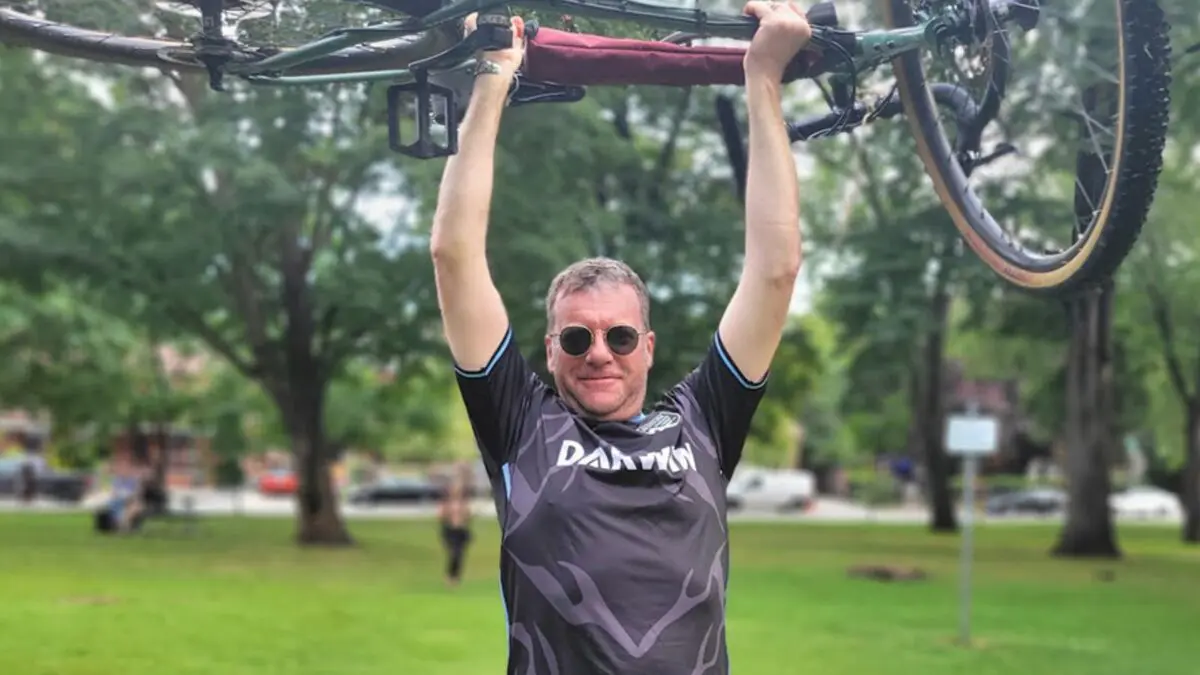Dr. Michael Randazzo examines a COVID-19 patient on the General Internal Medicine ward at Toronto General Hospital. (Photo: UHN)
The impact of the Omicron wave on UHN General Internal Medicine (GIM) units was big.
“The GIM units were so bombarded. You’d be admitting COVID patients from downstairs in the ED, and also you’d be covering any acute issues that arise with the COVID teams during the night,” explains Dr. Michael Randazzo, a GIM staff internist. “And there were interprovincial transfers, which sometimes come at midnight because the other hospitals need help too. So, it could get fairly busy.”
And how fast did it get busy?
On Dec. 30, there were no GIM COVID units at UHN. Eight days later, there were four. By mid-January those four units were treating more than 130 patients with the virus.
“GIM seems like it got the most volume this time around,” says Dr. Randazzo, “Of course, a little bit stressful, but it was like hey, we’ve done this for the past two years. We got this now, we know the drill.”
Just as those GIM units were opening, Dr. Randazzo was in the first week of a much needed break. He knew he was burnt out. He and his fiancé had booked a trip to the Caribbean Island of Saint Martin for a couple of weeks in January.
But, the best-laid plans.
“After Christmas, when things were starting to get really bad, I was like, I can’t sit here at home,” says Dr. Randazzo, “I had to contribute somehow. You don’t want to leave your co-workers behind.”
So, Dr. Randazzo cancelled his trip and took on several overnight – a.k.a. “nocturnist” – shifts on the UHN GIM units in January.
Thanks to the leadership of GIM Site Lead Dr. Jessica Liu and GIM COVID Lead Dr. Ryan Luther, plus the fact everyone “knows the drill,” Dr. Randazzo says the GIM teams at UHN adapted seamlessly to the demands of the Omicron wave.
“They just stepped right up to the plate and they did what they always do,” he says proudly. “The GIM team is very resilient and we all kept a smile on our face and we all kept our humour and we just kept going.”
For Dr. Randazzo, vaccination is the way forward out of the pandemic.
“It causes less illness if you’re vaccinated, so the main thing is we have to keep on pushing for it,” he says.
Because bottom line, he says, the coronavirus is likely here to stay.
“The general feeling is we know it’s going to be around and we know it’s not just gonna vanish, right?” he says. “Of course, people are frustrated, but it’s kind of like, okay, it’s here. How are we gonna manage it?
“So, that all makes the vaccine very important.”
As for the potential of future burnout, he’s taken steps to protect his mental wellness.
“When you saw me last time. I was burnt out,” says Dr. Randazzo, who last spring was featured in story chronicling the frontlines of the pandemic. “Over the last year, I’ve learned to pace myself.
“And exercise is the big thing …. I have a room at home that I use as a little mini gym. So, this time around I’m able to cope better. I’m able to rest better. Because COVID continues, but life goes on too.”


